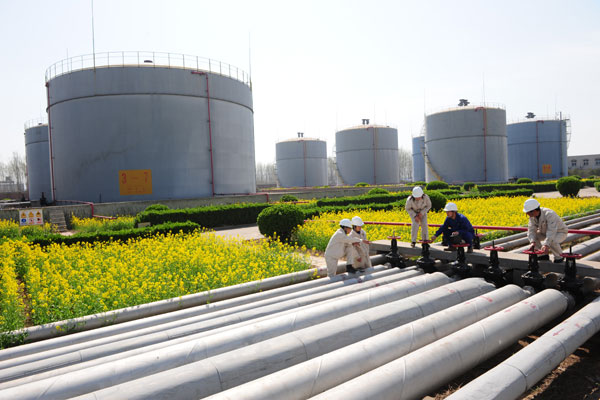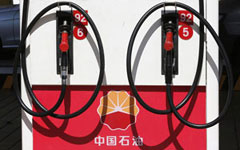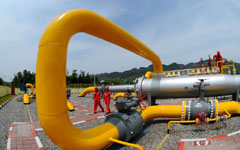 |
|
Workers inspect pipelines at a refined oil storage facility in Puyang, Henan province. Oil refining companies will have to eliminate units with annual capacity of less than 2 million metric tons as the country upgrades its production chain. Tong Jiang / For China Daily |
Agency aims to clean the air and upgrade sector's technology by cutting capacity
China will shut down small, obsolete petroleum refining facilities as it pursues a two-pronged strategy of upgrading the industry's technology level while improving air quality, according to a document from the National Energy Administration.
Refining companies are being told to eliminate units with annual capacity of less than 2 million metric tons, according to the document.
|
 |
 |
"The government is working on improving the industrial chain of the refining sector, which has shown an increasing focus on clean production and environmental protection," said Sun Yansong, a researcher with ICIS-C1 Energy, a Shanghai-based energy information consultancy.
She noted that the authorities had announced similar capacity-cutting plans in previous years, with limited success. She said she believes the government will take stricter action this time.
In recent years, the domestic oil product market has been weak. Forcing out obsolete capacity will benefit the whole industry, said Sun.
The government also aims to limit refiners' debt burdens.
According to the document, the capital base - that is, companies' initial investment from internal resources in new refining projects - should account for more than one-third of the total investment. For expansions, the capital base should be more than 40 percent of the total investment.
The debt ratio of investors in refining projects should not be higher than 60 percent.
